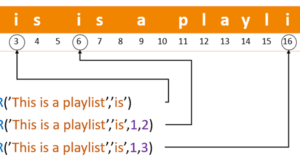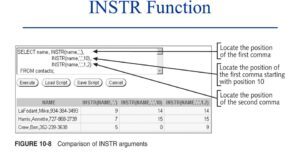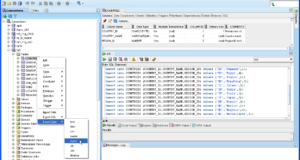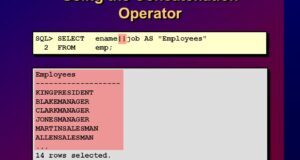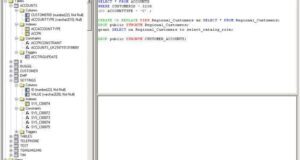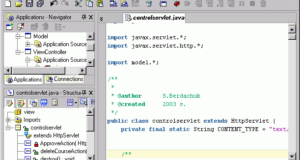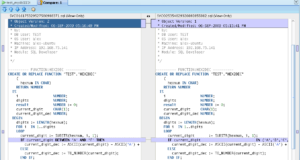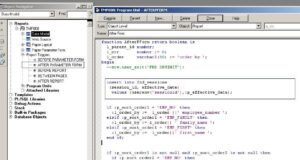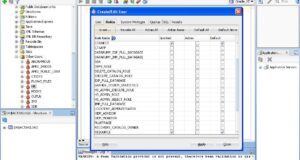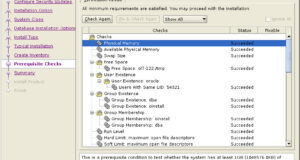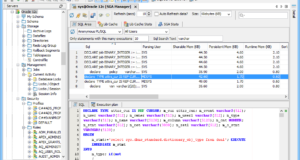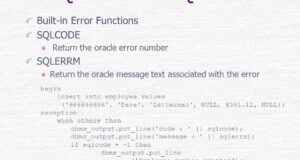Tag: PL/SQL
The Oracle/PLSQL INSTR2 function returns substring occurrence in a string using UCS2 code points. Function Oracle/PLSQL INSTR2 syntax INSTR2( string_id, substring_id [, start_position_id [,...
The Oracle/PLSQL INSTR function returns the n-th occurrence of a substring in a string. Oracle/PLSQL INSTR function syntax INSTR( string1, substring1 [, start_position_id [, nth_appearance_id ]...
The Oracle/PLSQL INITCAP function sets the first character of each word in upper case, and the rest in lower case. Syntax of the Oracle/PLSQL INITCAP function INITCAP( string1_id ) Parameters...
The Oracle/PLSQL DUMP function returns a value of varchar2, which includes data type code, length in bytes, and the internal representation of the expression. Oracle/PLSQL DUMP function...
Oracle/PLSQL concatenation operator || allows to combine two or more lines together. Syntax for the Oracle/PLSQL statement || string1_id || string2_id || string_n_id Operator parameters and...
The Oracle/PLSQL CONCAT function allows two lines to be connected together. Syntax of the Oracle/PLSQL CONCAT function CONCAT( string1_id, string2_id ) Parameters and function arguments...
The Oracle/PLSQL COMPOSE function returns the Unicode string. Oracle PLSQL COMPOSE function syntax COMPOSE( string_id ) Parameters and function argumentsstring_id - is an input value...
The Oracle/PLSQL CHR function is the opposite of the ASCII function. CHR returns a character that is based on numeric code. Syntax of the Oracle/PLSQL CHR function CHR (number_code_id)...
The Oracle/PLSQL ASCIISTR function converts a string of any character set to an ASCII string using the database character set. Syntax of the Oracle/PLSQL function ASCIISTR ASCIISTR( string_id...
The Oracle/PLSQL ASCII function returns the numeric representation of the leftmost character of the string. Syntax of the Oracle/PLSQL ASCII function ASCII( single_character_id )...
Oracle PL/SQL FunctionsFunction DescriptionBFILENAME The Oracle/PLSQL function returns the BFILENAME locator corresponding to the operating system's physical filename file...
Oracle/PLSQL USERENV function is used to get information about the current Oracle session. Although this function still exists in Oracle for backward compatibility, it is recommended to use the...
Oracle/PLSQL USER function returns user_id from the current Oracle session. Oracle/PLSQL syntax of the USER function USER Parameters or arguments The USER function has no parameters or...
Oracle/PLSQL function UID returns an integer number identifying the current database user. Oracle/PLSQL syntax of UID functions UIDThe UID function has no parameters or arguments.The...
Oracle/PLSQL function SYS_CONTEXT is used to get information about the state of Oracle environment. Syntax of Oracle/PLSQL function SYS_CONTEXT SYS_CONTEXT( namespace_id, parameter_id, [...
The SQLERRM function returns an error message related to an exceptional situation. This function can only be used in the exception handling section of your code. Syntax of SQLERRM...

